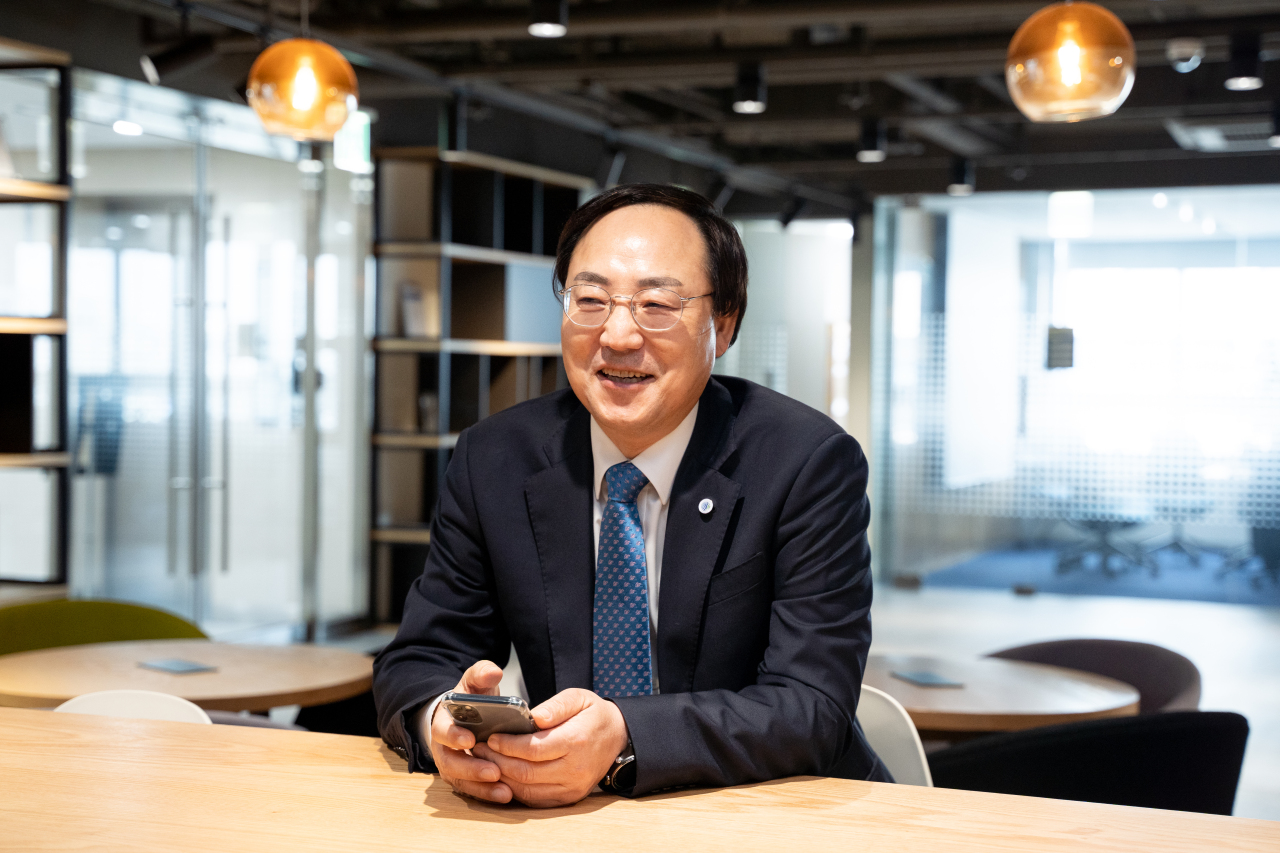All buildings -- whether residential or commercial -- have certain management systems to prevent unexpected dangers.
These systems include a wide range of facilities and services, from ventilation and cooling to fire detection and security systems. Though they often go unnoticed or are hidden behind the walls, they have to continuously evolve.
“Whether a building is smart or not is decided by how its management control system is integrated to provide the most efficient solutions,” Ha Woon-sik, Johnson Controls Korea president, said in an interview with The Korea Herald on Aug. 13.
Johnson Controls is a multinational company that owns leading fire and security brand Tyco and global HVAC (heating, ventilation and air-conditioning) brand York, operating in 150 countries and hires 105,000 building experts.
According to the company, it provides services to 90 percent of the world’s most iconic buildings, including the 123-story Lotte World Tower in South Korea.
Ha, who was appointed to lead the Korea branch in March, explained how “efficient” operation of buildings can save energy and costs, and also increase safety and comfort for the building users.
Imagine a room that automatically adjusts the room temperature and lighting to the best level by counting how many people are inside, and what they are doing.
What about a fire detection system that accurately finds where the fire has broken out and in which direction the smoke is heading, and automatically calculates and directs people to the right fire escape?
These are not impossible future ideas, but are currently happening, Ha explained, highlighting his company’s role in making buildings smart.
With the goal, he said the company has recently launched OpenBlue, a solution platform that integrates its technologies into one.
While each of its business sectors, such as the fire control system, elevator management and security, have separately developed cutting-edge technologies, the artificial intelligence-powered platform combines the data collected from each to enable remote diagnostics, predictive maintenance, compliance monitoring and advanced risk assessments, to draw a comprehensive solution for building management, he explained.
In terms of energy saving, newly built smart buildings will already be equipped with such as solar panels and geothermal technologies to source renewable energy. But for old buildings, Johnson Controls system can reduce the energy waste by about 10 to 20 percent, Ha said.
“Considering the recent downpour and abnormal weather worldwide, going smart in buildings is crucial, as its goal is ultimately going zero net energy building,” Ha said, adding that smart building is the way to satisfy all three: building owners, managers and tenants.
Ha is an energy expert, who started his career at state-run Korea Electric Power Corp. and moved to GE Energy Korea in 1994 and to become the president there before joining Johnson Controls.
Now heading Johnson Controls Korea, Ha said he aims to leverage OpenBlue to promote smart building and smart city.
“I have worked in the field of energy during my career, and I wanted to try something else. Learning about Johnson Controls, its pursuit of smart buildings and smart city, and how its technology protects our assets intrigued me,” he said.
Eager to raise brand awareness of Johnson Controls, Ha said he also plans to work with Korean construction companies operating overseas.
By Jo He-rim (
herim@heraldcorp.com)






![[Exclusive] Hyundai Mobis eyes closer ties with BYD](http://res.heraldm.com/phpwas/restmb_idxmake.php?idx=644&simg=/content/image/2024/11/25/20241125050044_0.jpg)
![[Herald Review] 'Gangnam B-Side' combines social realism with masterful suspense, performance](http://res.heraldm.com/phpwas/restmb_idxmake.php?idx=644&simg=/content/image/2024/11/25/20241125050072_0.jpg)
